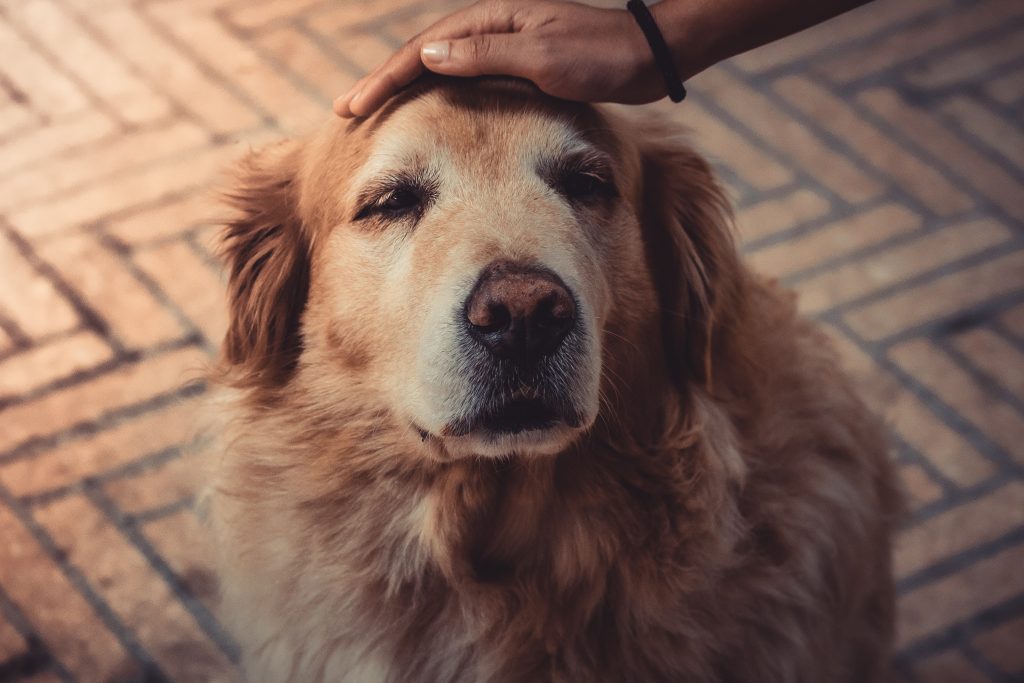There’s something truly special about the love and companionship that a dog brings into our lives. Their unwavering loyalty, boundless affection, and endless capacity for joy make them beloved members of our families. While many people dream of bringing home a playful puppy, there’s an often-overlooked group of furry friends that is equally deserving of our attention and care: senior dogs.
In this blog post, we’ll explore the unique joys and benefits of adopting a senior dog. We’ll debunk common misconceptions about their age and health, shed light on the remarkable resilience of these furry souls, and provide practical advice for making the transition a smooth and successful one. Whether you’re a first-time pet owner or a seasoned dog lover, you’ll discover that bringing home a senior dog is not only a compassionate choice but also an enriching journey for both you and your new best friend.

Benefits of Adopting a Senior Dog Instead of a Puppy
Adopting a senior dog comes with a multitude of benefits that go beyond their age. Here are some compelling reasons why opening your heart and home to a senior canine companion can be an incredibly rewarding experience:
- Calm and Gentle Demeanor: Unlike puppies or younger dogs, senior dogs have generally outgrown their rambunctious phase. They often have a calmer and more relaxed disposition, making them an excellent choice for individuals or families seeking a more peaceful and low-energy pet. Their laid-back nature can be especially suitable for senior citizens or people with a less active lifestyle.
- Established Manners and Training: Senior dogs have had more years of experience and often come with a foundation of basic training and good manners. They are typically housebroken, leash-trained, and have a better understanding of commands and expectations. This can save you a significant amount of time and effort compared to the early stages of training a puppy.
- Compatibility: When adopting a senior dog, you have a clearer understanding of their personality, temperament, and energy level. This allows you to choose a dog whose characteristics align well with your lifestyle and preferences. Whether you’re looking for a couch companion or a gentle walking partner, senior dogs can often be a perfect match for your specific needs.
- Gratitude and Deep Bonding: Senior dogs often have a profound sense of gratitude for being given a second chance at a loving home. Their appreciation and devotion are truly heartwarming, creating a strong and meaningful bond between you and your new furry friend. The knowledge that you’ve provided comfort and security to a senior dog in their golden years can be an incredibly fulfilling experience.
- Reduced Energy and Exercise Demands: While every dog requires exercise, senior dogs typically have lower energy levels and exercise requirements compared to younger dogs. They may be content with leisurely walks, short play sessions, or simply enjoying your company on the couch. This makes them an ideal choice for individuals or families with a more relaxed lifestyle or limited physical abilities.
- Emotional Support: Senior dogs have often experienced life’s ups and downs, which can make them incredibly empathetic and intuitive companions. Their comforting presence and unconditional love can provide significant emotional support, especially for those going through difficult times or dealing with loneliness.
- Saving a Life: By adopting a senior dog, you’re not only gaining a loving companion but also providing a second chance at a happy life. Sadly, older dogs are often the most overlooked and at risk of euthanasia in shelters. Giving them a forever home not only saves their life but also opens up space in the shelter for another dog in need.
Taking Care of a Senior Dog
Taking care of a senior dog requires some special attention and considerations to ensure their comfort, health, and overall well-being. Here are some essential aspects to keep in mind when caring for a senior canine companion:
- Regular Veterinary Care: Senior dogs should have regular check-ups with a veterinarian. It’s important to monitor their health, address any age-related issues, and ensure they are up to date on vaccinations and preventive care. Regular wellness exams, blood work, dental cleanings, and screenings for common age-related conditions can help detect and manage any potential health issues early on.
- Balanced Diet and Nutrition: As dogs age, their nutritional needs may change. Consult with your veterinarian to determine the appropriate diet for your senior dog. They may require a specialized senior dog food that addresses their specific needs, such as joint health, weight management, or digestion. Adequate hydration is also crucial, so always provide fresh water for your dog.
- Weight Management: Maintaining a healthy weight is crucial for senior dogs to prevent unnecessary strain on their joints and organs. Obesity can exacerbate age-related conditions, such as arthritis and heart disease. Ensure your dog is on an appropriate diet and portion control to maintain a healthy weight. Regular exercise, tailored to their abilities, can also help with weight management.
- Exercise and Mental Stimulation: While senior dogs may have reduced energy levels, regular exercise is still essential for their physical and mental well-being. Adjust exercise routines to their capabilities, opting for shorter walks, gentle play sessions, or mentally stimulating activities. Exercise helps keep their muscles strong, joints mobile, and can prevent age-related conditions such as obesity and cognitive decline.
- Comfortable Living Environment: Make your home senior-dog friendly by providing a comfortable and safe living environment. Ensure they have a cozy bed with adequate cushioning, especially for dogs with joint issues. Consider using non-slip rugs or mats to provide traction on slippery floors. Provide easy access to water, food, and outdoor areas to minimize discomfort and improve mobility.
- Joint Care and Pain Management: Arthritis and other joint-related issues are common in senior dogs. Speak to your veterinarian about appropriate joint supplements or medications that can help alleviate pain and improve mobility. Providing orthopedic bedding or ramps to help them navigate stairs or elevated surfaces can also make their daily life more comfortable.
- Dental Care: Dental health is crucial for dogs of all ages, including seniors. Regular teeth brushing and dental check-ups can help prevent dental diseases and ensure their overall health. Dental problems can lead to pain, difficulty eating, and even systemic health issues. Incorporate dental hygiene practices into your senior dog’s routine.
- Cognitive Stimulation: Just like humans, senior dogs can experience cognitive decline. Mental stimulation is vital to keep their minds active and slow down cognitive decline. Engage in interactive play, provide puzzle toys, and consider training sessions that focus on mental exercises and obedience training. These activities help keep their minds sharp and improve their overall quality of life.
- Unconditional Love and Patience: Senior dogs may have special needs or health challenges that require extra care and attention. Approach their care with unconditional love, patience, and understanding. Embrace their quirks, provide them with comfort, and cherish the moments you have together.

By opening your heart and home to a senior dog, you’re not only gaining a loyal and devoted companion but also giving them the gift of a second chance at a loving home. The love and gratitude they will show you in return will fill your days with immeasurable joy and fulfillment.
So, if you’re considering adding a furry family member to your home, look beyond their age and consider the immense rewards of adopting a senior dog. Together, you can create a beautiful chapter in their life and embark on a heartwarming journey filled with unconditional love, companionship, and cherished memories that will last a lifetime.
Check out more blog posts on our website here.
